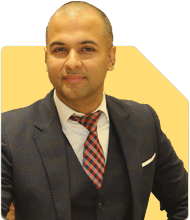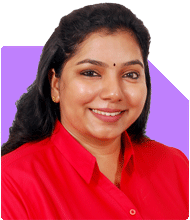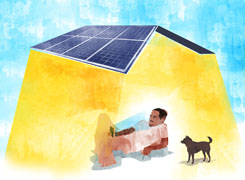Should I buy an apartment in Chennai or build a floor in Hyderabad?
Ramalingam Kalirajan |7478 Answers |Ask -Follow
Mutual Funds, Financial Planning Expert - Answered on Aug 28, 2024
He has an MBA in finance from the University of Madras and is a certified financial planner.
He is the director and chief financial planner at Holistic Investment, a Chennai-based firm that offers financial planning and wealth management advice.... more

Sir, I am 47 years old. I am a central govt employee in Hyderabad. I am taking a transfer to Chennai as my wife is working there. We have one daughter studying in 5th standard. I've purchased an independent house in Hyderabad on loan for which I am paying EMI. It may take another 7 years to close the present home loan. I have savings of 22 lakhs. Should I buy an apartment flat in Chennai with another home loan or construct the first floor on my existing house and rent it out? I want to rent out the total ground floor and part of the first floor of my house here and on which I may get a rent of 20k. I want to keep some portion of the first floor so as to be used whenever I visit Hyderabad and also to keep a control on the house here. I am a native of Telangana. I want to visit here sometimes as my relatives are here. I have not yet planned where to stay after retirement. My intention is to keep the house in Hyderabad until my daughter completes her higher studies or gets married. Can you please advise?
With your savings, you can manage the construction cost, maintain control over the property, and still have a place in Hyderabad for future visits. This plan also keeps your options open for deciding where to settle after retirement.
Best Regards,
K. Ramalingam, MBA, CFP,
Chief Financial Planner,
www.holisticinvestment.in
You may like to see similar questions and answers below
Ramalingam Kalirajan |7478 Answers |Ask -Follow
Mutual Funds, Financial Planning Expert - Answered on Jun 18, 2024
Ramalingam Kalirajan |7478 Answers |Ask -Follow
Mutual Funds, Financial Planning Expert - Answered on Jan 06, 2025
Ramalingam Kalirajan |7478 Answers |Ask -Follow
Mutual Funds, Financial Planning Expert - Answered on Dec 16, 2024
Harsh Bharwani |69 Answers |Ask -Follow
Entrepreneurship Expert - Answered on Jan 09, 2025
Radheshyam Zanwar |1137 Answers |Ask -Follow
MHT-CET, IIT-JEE, NEET-UG Expert - Answered on Jan 09, 2025
Radheshyam Zanwar |1137 Answers |Ask -Follow
MHT-CET, IIT-JEE, NEET-UG Expert - Answered on Jan 09, 2025
Pushpa R |42 Answers |Ask -Follow
Yoga, Mindfulness Expert - Answered on Jan 09, 2025
Pushpa R |42 Answers |Ask -Follow
Yoga, Mindfulness Expert - Answered on Jan 09, 2025
Ravi Mittal |500 Answers |Ask -Follow
Dating, Relationships Expert - Answered on Jan 09, 2025
Ramalingam Kalirajan |7478 Answers |Ask -Follow
Mutual Funds, Financial Planning Expert - Answered on Jan 09, 2025
Kanchan Rai |479 Answers |Ask -Follow
Relationships Expert, Mind Coach - Answered on Jan 09, 2025
Kanchan Rai |479 Answers |Ask -Follow
Relationships Expert, Mind Coach - Answered on Jan 09, 2025
Radheshyam Zanwar |1137 Answers |Ask -Follow
MHT-CET, IIT-JEE, NEET-UG Expert - Answered on Jan 09, 2025

























